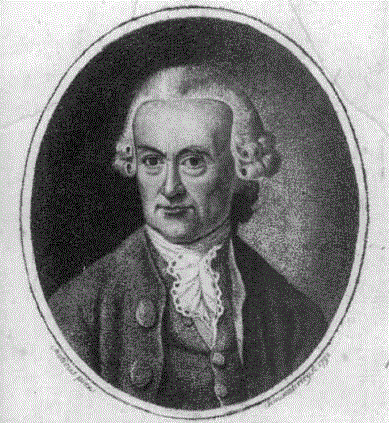
Wilhelm Friedemann Bach, the eldest son of Johann Sebastian, is composer of the month April. He became his father’s apprentice at an early age and proved to have a talent for keyboard instruments. Most of his works that are known today were composed for organ or harpsichord.
In 1731, Wilhelm Friedemann became an organist in Dresden. He combined the forms his father used, such as counterpoint dances, with a French melody style. However, halfway through the 1740s, Wilhelm Friedemann changed position and moved to Halle, where he lived near his father. When his father died in 1750, Wilhelm Friedemann became the administrator of his musical estate.
The last years of Bach’s life weren’t the happiest. He performed as an organist, but held no permanent post and was forced to sell his father’s and his own manuscripts. In 1784, he died in great poverty and fell somewhat out of favour. After 1750, many people were thinking of Carl Emmanuel rather than Wilhelm Friedemann when hearing the name of Bach. Due to the growing interest in Johann Sebastian after 1800, the works of all his children disappeared into the background. It was only in the early 20th century that the interest in the works of Wilhelm Friedemann revived, and unknown pieces of his work pop up occasionally.
Listen
Every day between 16.00 and 17.00 CET starting Wednesday 1 April 2020.








